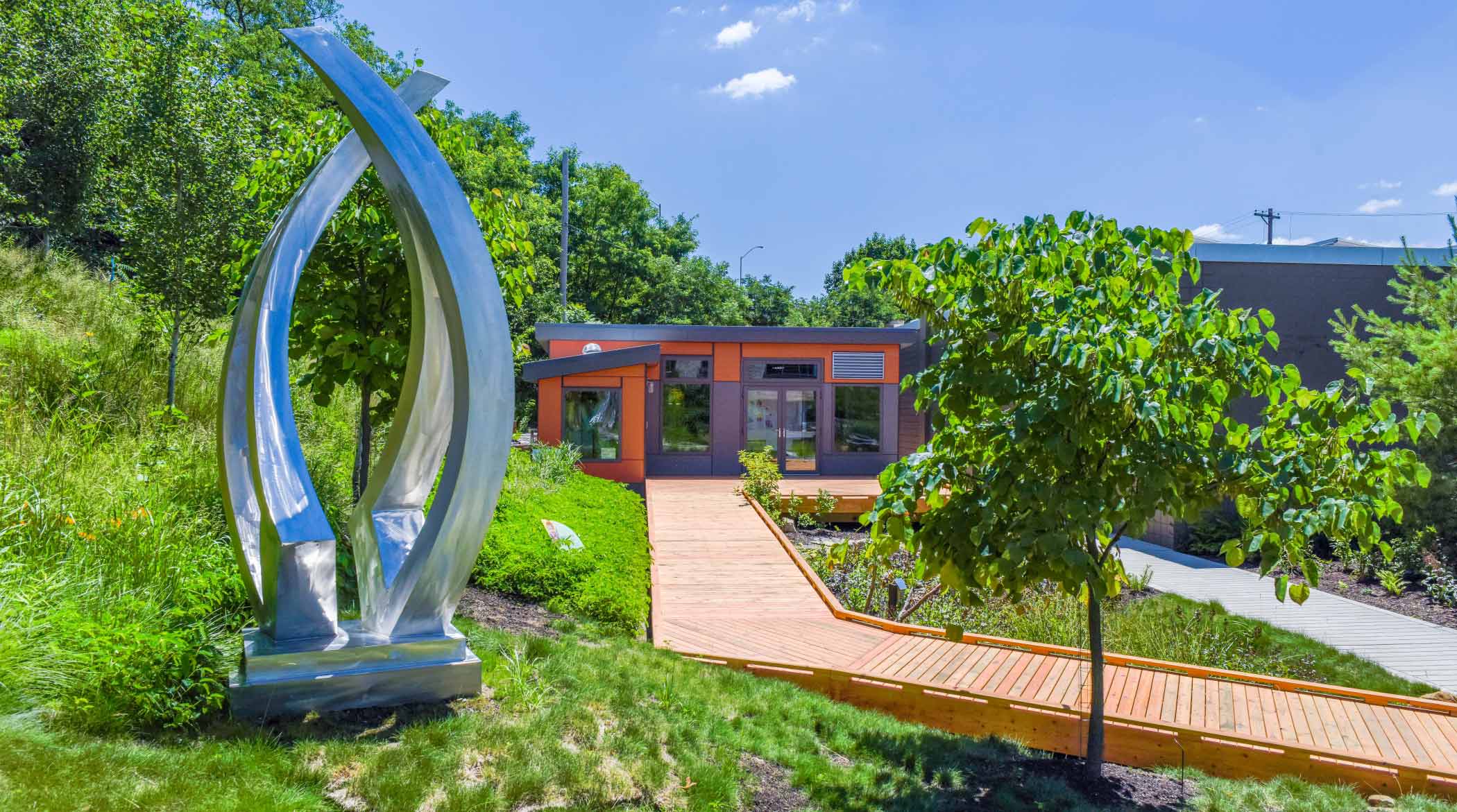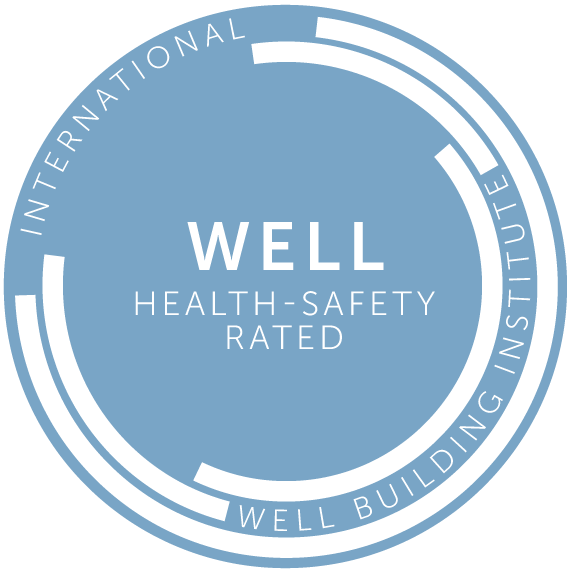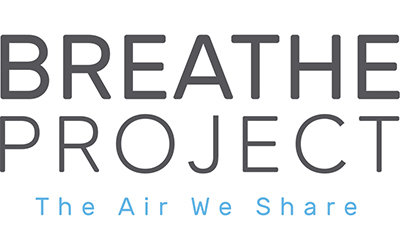Nature Lab at Phipps
Visit the Nature Lab
The Nature Lab at Phipps is now open for you to discover. Drop in on Saturdays from 11 a.m. – 3 p.m. and a graduate of our Learning for a Greener Future high school internship will show you the building's amazing features. No advance reservation is required.
The Learning Laboratory of the Future, Built to Maximize Student Wellness and Potential
Unveiled in 2015, the Nature Lab at Phipps is one of the nation’s first sustainable, modular classroom spaces. Designed by The SEED Collaborative to serve a dual purpose as a learning laboratory and an innovative, replicable model for healthy learning spaces, the Nature Lab features non-toxic materials, generates its own energy, and recycles water on site. Fabricated locally by EcoCraft Homes, it demonstrates how classrooms of the future can be built to maximize student wellness and potential. The building shows what healthy spaces look like for kids and calls attention to the importance of providing healthy learning environments for children. In May 2017, the Classroom achieved the esteemed Living Building Challenge™ Petal Certification from the International Living Future Institute.
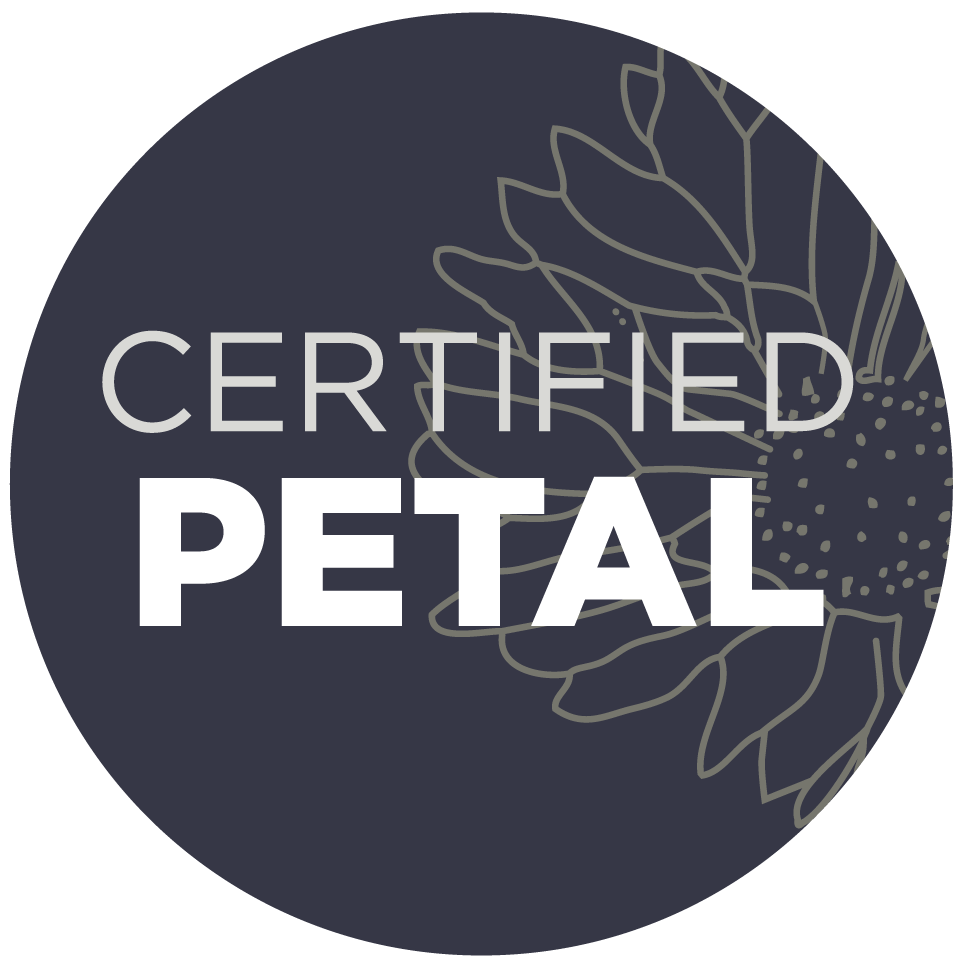
The Nature Lab received Petal Certification by achieving five of the Living Building Challenge Standard’s “Petals,” or sets of imperatives for sustainability and wellness in the built environment. These five Petals — Site, Water, Energy, Equity and Beauty — were achieved by carefully documenting the building’s design, construction and performance, demonstrating that the Nature Lab generates all of its own energy, treats and reuses all water onsite, was built on previously developed land with minimal impact on the environment, includes educational materials that teach guests about how the building functions, and implements other innovative aspects that make it a healthy place for children to learn. This remarkable space demonstrates the great benefits humans experience when we take nature into consideration in our built spaces.
The Nature Lab was made possible by the generous support of the Rita M. McGinley Foundation in honor of Rita M. McGinley and parents Bernard L. and Katherine I. McGinley.
Virtual Tour
Explore the Nature Lab in a virtual tour hosted by Science Education Coordinator Jennifer Torrance:
More Details
Click the sections below for additional details on project features and more.
Approximately 260,000 modular classrooms are in use across the country. Providing schools with a quick solution for expansion, they are commonly cited for the potential health risks they pose due to:
• Inadequate ventilation
• High levels of toxins, such as formaldehyde, flame retardants, phthalates and volatile organic compounds
• Mold, excess moisture and musty odors
• Inadequate lighting
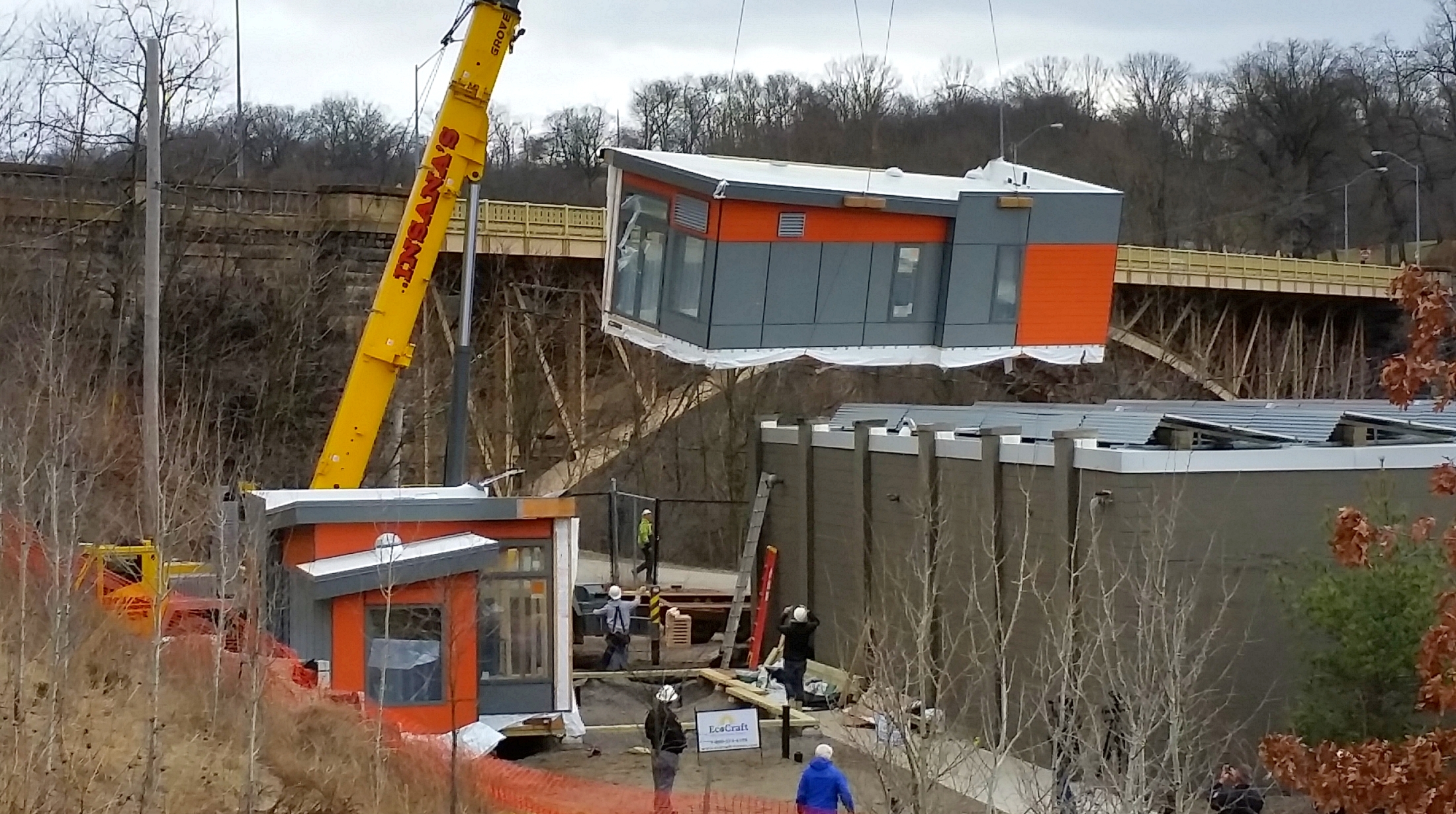
Research suggests a correlation between access to nature and human health. Phipps aims to bring nature indoors and foster a new generation of environmental stewards. Other facility features include:
- Use of non-toxic building materials
- A green wall to treat greywater
- Abundant natural daylight
- 6 kW photovoltaic solar panels produce 100% of energy needs
- Sanitary water treated with constructed wetlands
- Structural Insulated Panels which provide R-49 ceiling and R-40 wall insulation
- Rainwater collected and filtered for building use or infiltration
- Exposed mechanical systems that encourage student engagement and inquiry
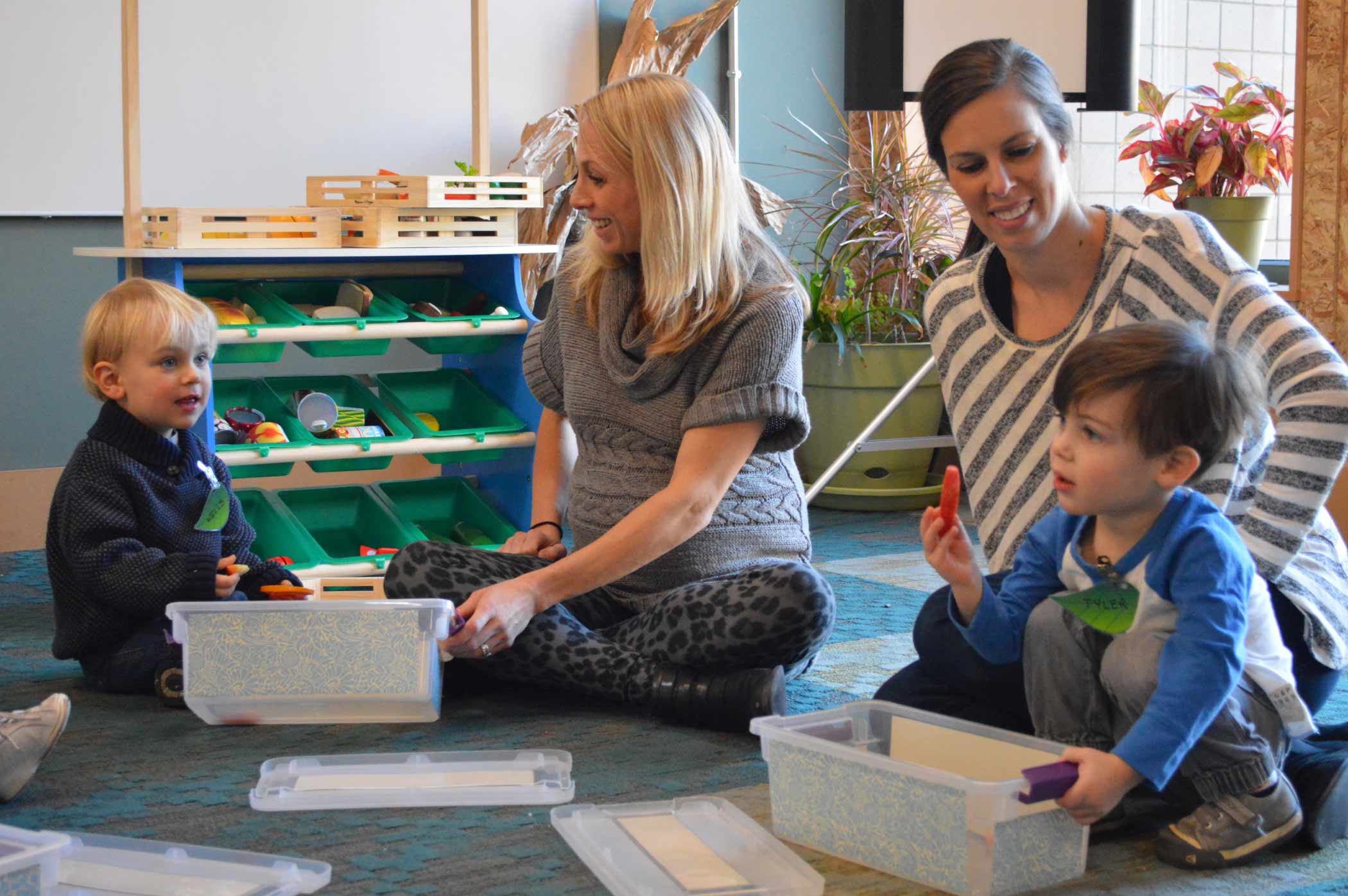
As the home of Phipps’ science education programs — along with internship classes for underserved students, field trips, citizen science initiatives, and professional development opportunities for teachers — the Nature Lab sparks scientific engagement.
Select photos © Paul g. Wiegman, Banko Media
